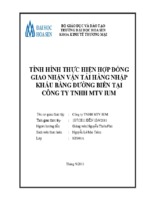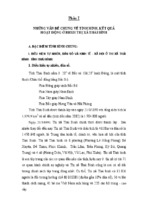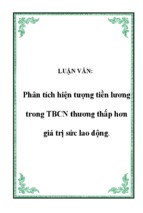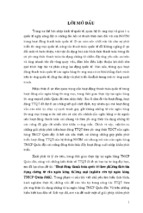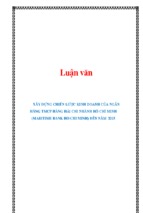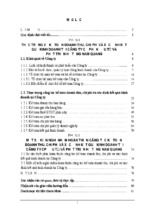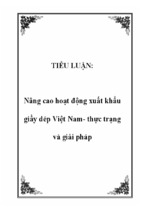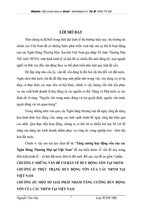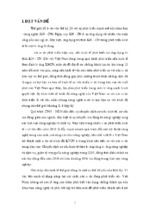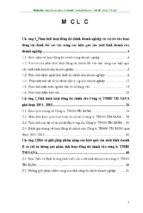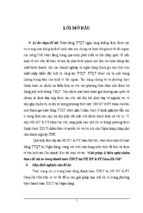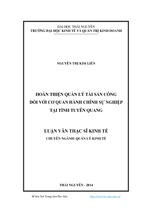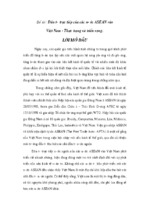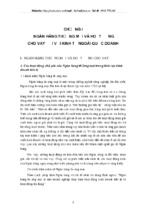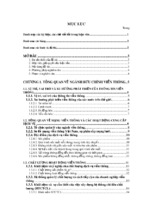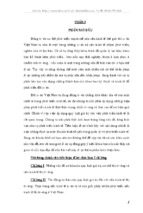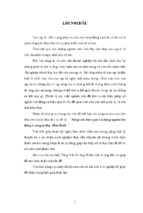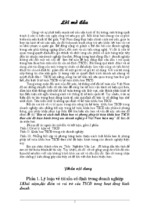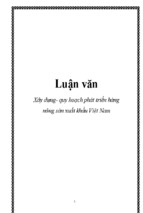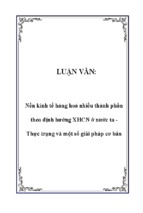TÀI LIỆU ÔN THI CÔNG CHỨC THUẾ
2020
MÔN TIẾNG ANH – NGỮ PHÁP
Hanoi 2020
1
CONTENTS – NỘI DUNG
PHẦN 1: TRẮC NGHIỆM LIÊN QUAN TỚI CHỌN TỪ/CỤM TỪ ĐÚNG
A. CÁC THỜI CƠ BẢN TRONG TIẾNG ANH
1. Present simple - hiện tại đơn
2. Present continuous - hiện tại tiếp diễn
3. Past simple – quá khứ đơn
4. Past continuous – quá khứ tiếp diễn
5. Các dạng tương lai
6. Present perfect - hiện tại hoàn thành
7. Past perfect – quá khứ hoàn thành
8. Non-finite verbs
B. LOẠI TỪ (danh từ, động từ, tính từ, trạng từ)
1. Nouns – danh từ
2. Adjectives – tính từ
3. Adverbs – trạng từ
4. Verbs: động từ
C. TỪ MANG NGHĨA NGỮ PHÁP
1. Determiners
2. Definite and indefinite articles - mạo từ
3. Conjunctions – liên từ
4. Another and other
5. Prepositions
6. Tag questions
7. Giới từ trong cụm danh từ, động từ, tính từ và trong phrasal verbs
7.1. Cụm tính từ kết hợp với giới từ
7.2. Cụm danh từ kết hợp với giới từ
7.3. Cụm động từ kết hợp với giới từ
D. TẠO TỪ MỚI TỪ TỪ GỐC - WORD FORMATION
PHẦN 2: TRẮC NGHIỆM LIÊN QUAN ĐẾN CHỌN CÂU ĐỒNG NGHĨA
A. CONDITIONALS – CÂU ĐIỀU KIỆN
1. Câu điều kiện loại 1
2. Câu điều kiện loại 2
3. Câu điều kiện loại 3
B. BỊ ĐỘNG – CHỦ ĐỘNG
1. Câu chủ động – bị động theo thời
2. Câu chuyển chủ động – bị động với động từ tường thuật
3. Trường hợp chuyển chủ động – bị động đặc biệt
C. SO SÁNH
1. So sánh bằng
2. So sánh hơn/ hơn nhất
D. REPORTED SPEECH – CÂU TRỰC TIẾP /GIÁN TIẾP
1. Chuyển đổi về thời giữa câu trực tiếp – gián tiếp
2. Chuyển đổi về trạng ngữ chỉ thời gian
3. Chuyển đổi về các thành phần khác: đại từ, tính từ sở hữu, etc.
2
PHẦN 1: TRẮC NGHIỆM LIÊN QUAN TỚI CHỌN TỪ/CỤM TỪ ĐÚNG
A. CÁC THỜI CƠ BẢN TRONG TIẾNG ANH
Bảng công thức cấu tạo động từ theo thời – Dạng câu chủ động
Đơn
Tiếp diễn
Hoàn thành
Hiện tại
I/you/we/they/ Danh
từ số nhiều + động
từ (nguyên thể)
She/he/it/ dtừ số it/
danh từ k đếm đc +
động từ (biến đổi)
Quá khứ
Tương
lai
Có quy tăc: V+ s
Bất quy tắc: V + es
Chủ ngữ + Đtừ
(qkhứ): V + ed
Chủ ngữ + will +
V(nguyên thể)
I – am;
You/we/they –
are;
She/he/it – is
+ V-ing
I/she/he/it –
was;
You/we/they –
were
+ V-ing
Chủ ngữ + Will
+ be + V-ing
She/he/it – has +
PII;
I/you/we/they have + PII
PII = V + ed (có
qtăc)
Bất qtắc: có bảng
kèm
Chủ ngữ + Had +
PII
Chủ ngữ + Will +
have + PII
Hoàn thành tiếp
diễn
She/he/it – has +
been + V-ing;
I/you/we/they have + been +
V-ing
Chủ ngữ + Had +
been + V-ing
Chủ ngữ + Will +
have + been +
V-ing
Bảng công thức cấu tạo động từ theo thời – Dạng câu bị động
Đơn
Tiếp diễn
Hoàn thành
Hiện tại
Am/are/is + PII
Quá khứ
Was/were + PII
Have/has + been
+ PII
Had + been + PII
Tương
lai
Will be + PII
Am/are/is +
being + PII
Was/were +
being +PII
Will be + being +
PII
Will have + been
+ PII
Hoàn thành tiếp
diễn
Have/has + been
being + PII
Had + been +
being + PII
Will have + been
being + PII
3
1. PRESENT SIMPLE - HIỆN TẠI ĐƠN
A. Form – Công thức
All verbs (except to be and the modals) follow this pattern.
I/you/we/they
Plural nouns
Câu khẳng định
Work
She/he/it
Works
Singular nouns
+ uncountables
Câu phủ định
don’t work
Câu nghi vấn
Do they
work…?
Doesn’t work
Does she work Wh- does she
…?
work …?
Câu hỏi chung
Wh- do they
work …?
NOTE:
Chủ ngữ là ngôi thứ 3 số ít, danh từ số ít và không đếm được:
► Động từ có quy tắc: “V + s”
Example:
She learns English very well.
My mother travels to work by her own car.
► Động từ bất quy tắc:
Verbs ending with “o, s, ss, sh, ch, x”: “V + es”
He goes to work at 7am every day.
My father often watches TV in the evening.
She does a lot of typing at her office.
Verbs ending with ‘y’: “y → i + es”
He often flies to New York for business.
She tries her best to learn English.
B. Functions or uses - Chức năng
* Hoạt động thường xảy ra, lặp đi lặp lại
Examples:
IBM is the largest computer company in the world; it manufactures
mainframes and PCs and sells its products all over the world.
I usually get to the showroom at about 8.00 and I have a quick look at the
post. The sales reps arrive at about 8.15 and we open at 8.30.
* Facts - Thực tế luôn đúng như kết quả nghiên cứu khoa học hay hiện tượng thiên
nhiên.
Examples:
The Earth goes around the Sun.
Superconductors are special materials that conduct electricity.
* Programs and timetables - Lịch trình/ chương trình/ thời gian biểu của các sự việc
trong tương lai.
Examples:
There are two flights to Tokyo next Thursday. There is a JAL flight that
leaves Heathrow at 20.30 and gets in at 06.20, and there is a British
Airways flight that departs at 22.00 and arrives at 08.50.
4
C. Time expressions - Trạng ngữ chỉ thời gian
Chỉ mức độ tần số
Examples include:
Always, usually, normally, often,sometimes, occasionally, rarely, not often, hardly ever,
never
Terry Smith, the chief executive of Collins Stewart, usually gets up 6 am. He takes the
train to London and arrives at his office by 8 am. Lunch is usually a sandwich with some
Japanese green leaf tea.
Vị trí của trạng từ:
Trước mọi động từ: I often take (I don’t often take) the Eurostar to
Brussels.
Sau đtừ “be”:
I’m usually (I’m not usually) nervous before the
presentation
Adverb phrases like every day, once a year, most of the time, from time to time,
now and then come at the beginning or end of the sentence.
Terry Smith travels to his New York office once a month.
We also use the present simple after these future time expressions: when, after,
before, unless, in case, as soon as, until, by the time, the next time
2. PRESENT CONTINUOUS - HIỆN TẠI TIẾP DIỄN
A. Công thức
Câu khẳng định
I
am + working
(I’m working)
You/ we/ are working
they
(we’re working)
Câu phủ định
am not working
(I’m not working)
are not (aren’t)
working
She/ he/ it
Is
not
working
Is working
(he’s working)
Câu nghi vấn
are you working
…?
Are they working
…?
Câu hỏi chung
Wh- are you
working … ?
Wh- are they
working … ?
(isn’t) Is he working … ? Whis
he
working … ?
B. Chức năng
* Hành động diễn ra tại thời điểm đang nói
I’m afraid Mr. Jackson’s not available at the moment. He is talking to a customer on the
other phone.
* Current projects – Công việc, dự án, … đang diễn ra.
Barton’s is one of the largest local construction companies. At the moment we are
building a new estate with 200 houses and we are negotiating with the council for the
sale of development land in Boxley Wood.
* Temporary situations – Tình huống tạm thời
5
Mrs. Harding organizes our conferences.
(The present simple is used because this is generally true)
Mrs. Harding is away on maternity leave, so I am organizing them.
(The present continuous is used because this is only true for a limited time)
* Slow changes – Thay đổi diễn ra từ từ (thường là biến đổi kinh tế, xã hội, …)
The latest economic statistics show that both unemployment and inflation are falling,
and that the economy is growing at an annual rate of 2.6%.
* Arrangements - Kế hoạch.
What are you doing on Friday afternoon? (What have you arranged to do?)
I am seeing the accountants. (I have arranged to see them.)
* State verbs
Các động từ chỉ tình thái thường không dùng ở dạng tiếp diễn mà dùng ở dạng đơn.
Verbs of thinking
Verbs of possession
Verbs of the senses
Verbs of emotion
Verbs of appearance
Others
believe, doubt, guess, imagine, know, realize, suppose,
understand
belong to, have, own, possess
hear, smell, sound, taste, look, feel
dislike, hate, like, love, prefer, regret, want, wish
appear, seem
contain, depend on, include, involve, mean, measure,
weigh, notice, accept
Exercise 1
Complete the sentences by putting the verbs in brackets into the present simple or
present continuous.
1. I …………….. (look at) the details on the screen now.
2. I ………………(look at) the sales results in detail every month.
3. The production line ……………. (not, work) at weekends.
4. The production line ……………. (not, work) at the moment.
5. Yes, I agree. I ………….. (think) it’s a good idea.
6. Helen ………………. (stay) at the Astoria while she’s in Madrid this month.
7. We ……………….. (take) a sample for testing once a day.
8. We ………………… (take) a big risk if we go ahead with the project.
9. They ……………….. (be) usually very flexible if we need to change the order.
10. They ……………… (be) flexible about giving us credit for a few more months
Exercise 2: Choose the correct form of the verb depending on whether in this meaning it
is an action or a state verb. If both the Present Continuous and the Present Simple tenses
are possible, use the Present Continuous tense.
1.
a) Why are you smelling the soup?
b) Why do you smell the soup?
6
2.
a) She was feeling his arm on her shoulder.
b) She felt his arm on her shoulder.
3.
a) Are you having an English dictionary?
b) Do you have an English dictionary?
4.
a) What are you thinking about?
b) What do you think about?
5.
a) I am feeling much better today.
b) I feel much better today.
6.
a) What are you looking at?
b) What do you look at?
7.
a) I am not hearing you.
b) I can't hear you.
8.
a) What are you thinking of me?
b) What do you think of me?
9.
a) I am feeling we should go home now.
b) I feel we should go home now.
10.
a) This bread is tasting funny.
b) This bread tastes funny.
3. PAST SIMPLE – QUÁ KHỨ ĐƠN
A. FORM:
Câu
định
khẳng Câu phủ định
Câu nghi vấn
Câu hỏi chung
I/you/we/they
S + didn't + Did/Didn't + S Wh- + did/didn't + S
She/he/it
S + V(past)
V(infinitive)
+ V(infinitive) + V(infinitive)
All nouns
* Có quy tăc: V(infinitive) + ed
* Bất quy tăc: (Bảng động từ bất quy tăc)
- I went to a very interesting presentation last week. (Bare infinitive: go)
- I rang her yesterday, but she wasn't in the office. (Bare infinitive: ring, be)
B. Chức năng: hành động đã xảy ra hoàn toàn trong quá khứ
C. Trạng ngữ
with prepositions
- at + 6 am/ the end of the year/ Christmas/
...
- on + Monday/15th May/New Year's Day/
...
- in + January/2009/the 1990s/summer/ ...
- during + the Second World War / ...
without prepositions
- yesterday/ yesterday morning/ last night/
- the day before yesterday/ ...
- last week/ month/ year/ summer/ decade/
century/ ...
- two weeks ago/ a few months ago/ ...
- When I was young
7
PRACTICE
Exercise 1: Use the verbs in the box to complete the sentences. Some of the sentences
are positive statements, some are negative, and some are questions.
accept
complain
hire
place
realize
study
visit
1. Oh, I'm sorry to disturb you. I didn't realize you had a visitor.
2. .............. you .................. economics when you were at university?
3. She ...................... ..................... the job because the salary was too low.
4. Last week a number of customers ..................... about slow services.
5. ................... you ................ the Acropolis when you were in Greece?
6. I am writing with reference to the order I .................... with you last week.
7. At last year's launch party, who ................. you .............. to do the catering?
Exercise 2:
Write in the missing form of each of the irregular verbs below. Each verb can be
used with the expressions on the right.
BARE
INFINITIVE
run
do
make
..................
write
...................
pay
..................
PAST TENSE
EXPRESSIONS
ran
.....................
.....................
went
.....................
had
......................
sold
... a business, ... out of something, ... up a bill
... a job well, ... your best, ... business (with)
... a profit, ... a mistake, ... a complaint
... abroad, ... out for a meal, ... bankrupt
... a letter, ... a report, ... out a cheque
... lunch, ... a meeting, ... problems
... by credit card, ... cash, ... in advance
... something at a profit, ... at a loss, ... out
Choose a past tense form and one of the expressions above to complete the following
sentences.
1. He made some calls from his hotel room and ran up a large phone bill.
2. We ....................... with that company a few years ago, but then we stopped dealing
with them.
3. The company lost money in its first year, but last year it ...................... of $2,5m.
4. He couldn't find a suitable job in his own country, so he ..................... to look for
work.
5. When the consultant had finished their study they ...................... for the directors,
giving a list of recommendations.
6. The engineers ..................... with the gearbox, so they made some modifications to it.
7. They didn't want cash or a cheque, so I .............................
8. The product was very popular. We ............... on the first day and ordered more stock.
8
4. PAST CONTINUOUS – QUÁ KHỨ TIẾP DIỄN
A. FORM – Công thức
Câu khẳng định
I/she/he/it was + working
Câu phủ định
was not (wasn't)
working
(I’m not working)
You/ we/ were working
were not (weren't)
they
(we
were working
working)
Câu nghi vấn
Câu hỏi chung
was she working Wh- was she
…?
working … ?
Were
they Wh- were they
working … ?
working … ?
B. Chức năng.
* Hành động đang xảy ra tại 1 thời điểm cụ thể trong quá khứ.
At 3.15 yesterday afternoon, Mr. Jansen was seeing some clients in London.
* Hành động bị xen ngang:
We were discussing our expansion plans when the chairman suddenly announced his
resignation.
We can rephrase this sentence using while + the past continuous:
While we were discussing our expansion plans, the chairman suddenly announced his
resignation.
* Sự phù hợp về thời:
When the phone rang, I was talking to a client.
When the phone rang, I answered it.
PRACTICE
1. Choose the correct tense, simple past or past continuous.
I (1) met/was meeting an old business colleague of mine while I (2) travelled/was
travelling to New York for a conference. She (3) noticed/ was noticing me while I (4)
stood/ was standing in the queue at the airport check-in desk. We decide to travel
together, and while we (5) waited/ were waiting for the flight to leave, we (6) realized
/were realizing that we were going to the same conference and staying at the same hotel.
We talked about old times, and while we (7) had/were having lunch on the plane, she (8)
said/was saying that she was going to look for a new job. I didn't think of it at the time,
but later on when the plane (9) came/ was coming in to land, I suddenly (10)
remembered/was remembering that we had a vacancy for a lawyer. I told her about the
terms and conditions, and later that evening, when we (11) had/were having dinner, she
(12) accepted/was accepting the position.
Exercise 2
In the following sentences, put one of the verbs in brackets into the past continuous,
and the other verb into the simple past.
1. (walk, notice) The security guard noticed the broken window while he was walking
round the warehouse.
2. (go, meet) I first ..................... Mr. Rodriguez when I .................. round Mexico on a
marketing trip.
3. (interrupt, give) When she ......................... her presentation, someone at the back of
the room ..................... to ask a question.
9
4. (finalize, ring up) While my PA ...................... arrangements for my trip to Brazil, the
clients ........................... to cancel the visit.
5. (notice, look) The auditors ........................ a large unauthorized withdrawal when they
....................... through the account.
6. (happen, clean) The worker who died ................. the chemical tank when the accident
..........................
7. (drop, take) One of the removal men .................... computer when he ................... it
into my office.
8. (work, approach) A head hunter ........................ her when she ...................... for ICL.
5. CÁC DẠNG TƯƠNG LAI
Phân biệt sự khác nhau giữa: am/are/is + V-ing, am/are/is + going to và will:
hiện tại tiếp diễn → kế hoạch (trừ state verbs)
I'm having a meeting with the Export Manager on Thursday at 2.15.
am/are/is + going to → quyết định, dự định
I've made up my mind. I'm going to buy a BMW 730i.
am/are/is + going to → dự đoán chắc chắn
It's already 34 degree Centigrate. It's going to be very hot today.
Will → quyết định tức thì
I wonder if Peter is back from his marketing trip. I'll give him a ring.
Will → lời hứa, dề nghị
I'll give you a hand with those boxes if you like.
Will → dự đoán chung
In the next century, computers will play a vital role in everyone's life.
PRACTICE
Exercise 1: Will or present continuous?
JENET: I've booked your flight and hotels for your trip to Ethiopia. You (1) are leaving
(leave) on the 18th at 6.30 a.m., and that means you (2) ................. (be) in Addis
Ababa late afternoon.
DAVID: What about hotels?
JENET: You (3) ................ (stay) at the Addis Ababa Hilton, and you (4) ...............
(have) to get a taxi there from the airport. Your first meeting is on Monday, and
you (5) ....................... (see) Mr. Haile Mariam from the Ministry of Agriculture
at 10.30.
DAVID: (6) ................... (I/need) any vaccinations?
JANET: I'm not sure, but leave it with me. I (7) ............... (phone) the travel agent, and
I (8) .................... (let) you know what she says.
Exercise 2: Fill in the blanks with the correct form of the future, using will or going.
1. A: I'm afraid the fax machine isn't working.
B: Don't worry, it's not a very urgent letter. I will post (post) it.
2. A: We've chosen a brand name for the new biscuits.
10
B: Really? What ..................... (you/call) them?
3. A: Why are you taking the day off on Friday?
B: I ........................ (look) at a new house.
4. A: I'm afraid there's no sugar. Do you want a coffee without any?
B: No, I ................... (not have) one, thanks.
5. A: Have you decide what to do about improving the circulation of the magazine?
B: Yes, we ...................... (cut) the cover price by 10% as from October.
6. PRESENT PERFECT - HIỆN TẠI HOÀN THÀNH
CÔNG THỨC: have/has + PII
Câu khẳng định
I/you/we/they have + taken
she/he/it
has + taken
Câu phủ định
have
not
(haven't) taken
has not (hasn't)
taken
Câu nghi vấn
Have
you
taken...?
Has he taken ... ?
Câu hỏi chung
Wh- have you
taken ... ?
Wh- has he
taken ... ?
CHỨC NĂNG:
- Diễn tả tình huống hiện tại là kết quả của điều gì đó đã xảy ra vào thời điểm không cụ
thể trong quá khứ:
I have given your report to the MD.
(I gave him your report and he has it now.)
I have sent them the samples they wanted.
(I sent them. They are in the post now.)
Trạng ngữ: just, already, ever, ...
- Just: vừa mới
I'm sorry, Mrs. Smith is not here. She has just left.
- Ever and never: nói về kinh nghiệm trong cuộc sống – đã từng hay chưa từng:
Have you ever worked abroad? (i.e., In all your life up to now)
I have never been to America. (i.e., Not in all my life up to now.)
- Already and yet:
They are getting on well with the new building. They have already modernized the
warehouse, but they haven't decorated the reception area yet.
Have you talked to Peter yet?
I have not talked to him yet.
- For and since
for + ten minutes/ five days/ three months/ two years/ etc.
since + 10.15/ Monday/ the 18th/ last week/ 1990/ I left school/ etc.
I have been with this company for six years.
I have been in computing since the beginning of 1989.
11
- Hành động đã hoàn thành trong thời gian vừa qua:
“to date, recently,lately, so far, up to now, in some recent years, over the past five
years, , over the last three months, etc.”
Over the past five years, the capital returns from many emerging Asian and Latin
American stock markets have been substantially higher than those of developed world,
as the chart shows.
For example, the market in Argentina has risen by 793% and Mexico has increased by
645%. In Asia, the booming market in Thailand has gone up by 364%, and investors in
the Philippines have seen a return of 204%.
Present perfect: continuous and simple
They have been producing cars here for 10 years.
(They started producing cars 10 years ago. They are still producing cars.)
I have been trying to ring them all day.
(I started trying to ring them this morning. I am still trying to ring them.)
Hiện tại hoàn thành đơn thường dùng với động từ tình thái (state verbs), hoặc diễn tả tình
huống lâu dài.
Ken has been in London since 9 o'clock this morning. (NOT: has been being ...)
I have lived in London all my life. (NOT: have been living ...)
PRACTICE
1. Put the verbs into the present perfect simple or the present perfect continuous.
1. We are thinking about opening an office in Tokyo, so ....................... (learn) Japanese
at evening classes for the last two months.
2. By the way, I ..................... (work) out those figures. They are on your desk now.
3. Do you know where that order form is? Peter ........................ (look) for it.
4. I'm sorry, I didn't know that you were here. ..................... (you/wait) long?
5. Since January, our turnover ....................... (increase) by 18%.
6. The film company is a reasonable investment. They ................. (make) four successful
films.
7. The lawyers .................... (look) through the contract, but they say they need another
day to read it all.
8. We ....................... (visit) potential sites for the new workshops, but we haven't found
anything suitable yet.
12
7. PAST PERFECT – QUÁ KHỨ HOÀN THÀNH
- Công thức: had + the past participle (PII).
- Chức năng: Hành động đã xảy ra trước hành động khác trong quá khứ
1. When I arrived at the office, the meeting started.
(I arrived at the office, and then the meeting started.)
2. When I arrived at the office, the meeting had started.
(The meeting started before I got to the office. I was late.)
Thường được dùng với các trạng ngữ: just, already, never, etc giống với thời
hiện tại hoàn thành:
I am nervous because I have never given a presentation.
(I am about to give a presentation.)
I was nervous because I had never given a presentation.
(I gave a presentation yesterday.)
Dùng trong câu điều kiện loại 3.
If his car hadn’t broken down he wouldn’t have been late for the meeting.
PRACTICE
Complete each of the following sentences in two ways, using because + past perfect
and so + simple past.
1. When I left the office, the building was empty...
(everyone/go home) because everyone had gone home.
(I/lock the door) so I locked the doors.
2. When I arrived at the office the next morning, the place was in a terrible mess ...
(I/phone the police) .........................................................................................
(someone/break in) ..........................................................................................
3. The chairman was in a very good mood ...
(we/win/a major contract) ...............................................................................
(we/open/a bottle of champagne) ....................................................................
4. The negotiators realized another meeting would be necessary ...
(they/not reach an agreement) .........................................................................
(they/got out/their diaries) ...............................................................................
5. I did not know their phone number ...
(I/call/Directory Enquiries) .............................................................................
(they/move/to new premises) ...........................................................................
6. The Marketing Manager's flight from Japan arrived late ...
(she/go/straight/home from the airport) .............................................................
(there/be/a security alert in Tokyo) ...................................................................
13
MINI TEST 1
1. Choose the best answer
1. I …………. the book before my next birthday.
A. shall have finished
B. will have finished
C. have finished
D. A & B
2. “Hello! …………. a cake?
A. Do you make
B. Are you making
C. Have you made D. B & C
3. He ………….. very quickly when I met him yesterday.
A. is walking
B. would walk
C. was walking
D. B & C
4. “Why is she running away?” – “Because she ……. it is time for bed and …… to go.”
A. is knowing, isn’t wanting
B. is knowing, doesn’t want
C. knows, does not want
D. B & C
5. Yesterday I ……….. a new watch as my old one …………
A. bought, stolen
B. bought, had been stolen
C. bought, would be stolen
D. was buying, had been stolen
6. We ………… you tomorrow after you …………. your work.
A. will meet, will have finished
B. will meet, have finished
C. meet, have finished
D. are meeting, finish
7. He said he ………….. sorry he ………….. me so much trouble.
A. was, had given B. was, gave
C. had been, would give D. was, was giving
8. I am sorry that I …….. you …… .. your pipe when you ……… to see me last
Thursday.
A. did not know, had left, came
B. did not know, left, came
C. had known, had left, came
D. did not know, had left, had come
9. He ………….. so good to me when I was a boy, that to this day I …………. his
kindness, and I hope that I ………………
A. was, didn’t forget, never will forget
B. was, haven’t forgotten, will never forget
C. was, didn’t forget, never forget
D. had been, didn’t forget, never will forget
10. He ………….. very hard lately.
A. is working
B. was working
C. has been working D. will have been
working
11. By the end of last year, he …………. four Shakespeare plays and by next year he
………… two more.
A. read, will read
B. had read, have read
C. read, will have read
D. had read, will have read
12. I …………….. English for three years now.
A. am studying
B. have been studying
C. will have been studying
D. am to study
13. I …………. him for a very long time.
A. have been knowing
B. have known
C. know
D. am knowing
14. This is the second time you ……… a cup; you ………. one yesterday.
A. broke, would broke
B. broke, broke
C. have broken, have broken
D. have broken, broke
15. Don’t come ………… I have finished lunch.
A. after
B. as soos as
C. since
D. until
16. As soon as he …………….. $3,000, he will retire from business.
A. saves
B. will save
C. has saved
D. will have saved
17. She …………… next month.
A. will be to marry
B. is to be married
C. is about married
D. is on the point to marry
14
18. They ………….. for Hue.
A. are going to leave
B. are about to leave
C. are on the point of leaving
D. All are correct
19. I ………… you are wrong.
A. am feeling
B. am to feel
C. felt
D. feel
20. I ………..it is a stupid idea. He should stay where he is.
A. am thinking
B. am going to think
C. think
D. have been thinking
8. NON-FINITE VERBS
A. The infinitive (Nguyên thể)
1. With “TO” – dạng nguyên thể có “TO”
Sau động từ khuyết thiếu: have to, ought to, be able to, used to
Sau tính từ: It / sbd + be + adj + TO DO
Ví dụ:
- It is necessary (for us) to learn English.
(boring, easy, dangerous, difficult, good, hard, important, strange ……)
- I am ready to help you.
(anxious, embarrassed, excited, delighted, happy, pleased, prepared, ready, sad, willing,
……..)
Sau một số động từ theo cấu trúc: Sbd + V + to + V
Ví dụ:
- I want to watch TV now.
(agree, appear, arrange, attempt, claim, decide, deserve, desire, expect, fail, forget, hope,
intend, learn, manage, mean, need, offer, prepare, pretend, promise, refuse, regret, seem,
struggle, tend, threaten, try, volunteer, wait, want, wish …)
Chú ý với các động từ được gạch chân, có thể dùng theo 2 cách: forget to do / forget
doing.
Ví dụ:
- Don’t forget to knock the door before you leave the house.
- He forgot borrowing me $100.
Sau một số động từ theo cấu trúc: Sbd + V + tân ngữ + to + V
Ví dụ:
- I want you to watch TV now.
(advice, allow, ask, cause, convince, challenge, enable, encourage, expect, force, hire,
instruct, invite, need, order, permit, persuade, remind, require, teach, tell, want, warn, …)
Sau danh từ
Ví dụ:
- I need some paper to write my report.
Sau đại từ
15
Ví dụ:
- Have you anything to eat?
(something, anything, nothing, someone/somebody, anyone/anybody, noone/nobody,
anywhere, somewhere, nowhere)
2. Without TO – dạng nguyên thể không có TO
Sau các động từ khuyết thiếu: can, may, must, will, shall, should, would, need,
had better, would rather
Sau động từ: let, make, have
B. The Gerund (Danh động từ)
1. Theo công thức: Be + adj + preposition + V-ing
Ví dụ: He is interested in playing chess.
Các tính từ thuộc nhóm:
- Có dạng phân từ 1 hay 2 được trình bày ở trang 7
- Be afraid of, be aware of, be capable of, be good at, be guilty of, be proud of, be
responsible for, be suitable for, be successful in, be sure of, be/get used to
2. Theo công thức: V + V-ing
Ví dụ: She loves cooking.
Gồm có các nhóm động từ:
- Like, love, enjoy, don’t mind, dislike, hate, detest.
- Begin, start, go on, continue, finish, stop*
- Admit, appreciate, avoid, can’t help, deny, delay, keep, imagine, miss, need,
postpone, quit, recommned, regret*, resist, risk, suggest, try*
3. Theo công thức: V + preposition + V-ing
Ví dụ: He succeeded in getting the job.
Gồm có các động từ:
Accuse sbd of, burst out, aim at, approve of, charge sbd of, complain of, depend on, feel
like, give up, insist on, keep on, look like, look forward to, object to, persist in, prevent
sbd from, put off rely on, succeed in, suspect sbd of, thank sbd for, think of, worry about.
4. Theo công thức: Noun + preposition + V-ing
Art of, chance of, choice of, excuse for, intention of, reason for, possibility of method of,
way of, …
5. Theo công thức: Preposition + V-ing
On, after, before, because of, in spite of, despite
C. The participles (Phân từ)
1. The present participle – V-ing: Phân từ 1
Sau các động từ: see, hear, feel, smell, listen to, notice, watch, catch
Ví dụ:
- I see him passing my house every day.
Sau các động từ: go, come, spend (time), waste (time), be busy
16
Ví dụ:
- Let’s go dancing.
Trước hay sau danh từ, thay cho một mệnh đề tính ngữ:
Ví dụ:
- She tried to calm down the crying child. (the child who was crying.)
- He came up to the policeman (who was) standing at the corner.
Thay thế cho một số mệnh đề trạng ngữ:
Ví dụ:
- Coming up to the door I found in locked. (= when I came …)
- Having done my homework I went out. (= After I had done …)
- Being small he went through the hole easily. (= Because he was small …)
Trường hợp có 2 hoặc hơn 2 động từ của cùng một chủ ngữ:
Ví dụ:
- He stood at the door looking at the tree. (He stood and looked …)
2. The past participle – V-ed: Phân từ 2
Sau động từ see, hear … với nghĩa bị động
Ví dụ:
- I saw the boy beaten.
Sau have, want, get với nghĩa bị động
Ví dụ:
- I have my hair cut every month.
Trước hay sau danh từ, thay cho một mệnh đề tính ngữ:
Ví dụ:
- I read the letter (which was) written in English.
- The stolen watch was never found again. (= the watch which was stolen)
- Thay thế cho một số mệnh đề trạng ngữ:
Ví dụ:
- When (she was) asked, she didn’t answer.
- If (I am) asked I’ll tell the truth.
- Through (he was) forced to speak, he didn’t say a word.
17
B. LOẠI TỪ (danh từ, động từ, tính từ, trạng từ)
1. NOUNS – DANH TỪ
1.1. Loại danh từ và chức năng
Có 4 loại danh từ như sau:
Common nouns: dog, man, table
Proper nouns: France, Madrid, Mrs Smith, Tom
Abstract nouns: beauty, charity, courage, fear, joy
Collective nouns: crowd, group, swarm, team, flock
Danh từ có thể có các chức năng trong câu:
- Chủ ngữ đứng trước động từ:
Tom arrived
- Thành phần bổ tố cho động từ “be, become, seem”: Tom is an actor.
- Tân ngữ đi sau động từ:
I saw Tom.
- Tân ngữ đi sau giới từ:
I spoke to Tom.
- Danh từ sau dạng sở hữu cách: Tom's books.
1.2. Countables & Uncountables: Đếm được và không đếm được
We could see a ship in the distance.
Can I have some water?
Claire has only got one sister.
Shall we sit on the grass?
I've got a problem with the car.
The money is quite safe.
Do you like these photos?
I love music.
I'm going out for five minutes.
Would you like some butter?
1.3. Singulars and Plurals: Số ít và số nhiều
Danh từ có quy tắc: Danh từ số ít + s = Danh từ số nhiều
Danh từ bất quy tắc:
a> Danh từ số ít kết thúc bằng “f” hoặc “fe”
Bỏ f/fe, thêm ves: a knife – knives, one half – two halves, my life – their lives, a
wolf – wolves.
Giữ nguyên, thêm s: one roof – roofs, a cliff – many cliffs, a safe – safes
Có thể giữ nguyên, cũng có thể bỏ f/fe thêm s: a dwarf – the seven dwarfs/
dwarves, one wharf – a few wharfs/ wharves
b> Danh từ có kết thúc bằng: “o, s, ss, sh, ch, x” ta cộng thêm “es” để trở thành
danh từ số nhiều
Ví dụ: a potato – two potatoes, a watch – two watches, a box – two boxes, …
c> Những danh từ số nhiều đặc biệt
a man – men
a woman – women
a person -- people
a foot – feet
a goose – geese
a tooth – teeth
a child – children
an ox – oxen (castrated bulls)
a brother – brethren (in church orders), brothers (in a family)
18
a mouse – mice
a louse – lice
a die – dice (for playing games)
Có rất nhiều danh từ có dạng số nhiều và số ít giống nhau như:
a sheep – sheep, a deer – deer, a moose – moose
a fish – fish (fishes: dùng khi chỉ các loài cá khác nhau )
a dozen – two dozen roses, a hundred – several hundred men (nhưng có thể nói:
dozens of roses, hundreds of people)
a TV series – many TV series,
a means – two means
a species – two species
d> Danh từ luôn ở dạng số nhiều
Một số danh từ luôn ở dạng số nhiều, cho dù có kết thúc bằng “s” hay không.
The police are looking for the robbers.
I like these pants / jeans / shorts.
Use either scissors or nail clippers.
Binoculars are stronger than any glasses.
f> Danh từ kết thúc bằng “o”
Với những từ kết thúc bằng “o”, khi chuyển sang danh từ số nhiều ta thêm "s" hoặc
"es." Nếu là một nguyên âm đứng trước “o” thì chỉ cần thêm “s”, như:
Radio-radios, video-videos
Nếu trước “o” là một phụ âm thì không có quy tắc nhất quán:
Potato-potatoes, hero-heroes
Nhưng ...
Photo-photos, memo-memos
Những từ kết thúc bằng “y” thường chuyển “y” thành “i” rồi mới thêm “es”
Cry-cries, fly-flies, party-parties
ex/ix – ices
an index - indices, indexes
The matrix - matrices
appendix - appendices, appendixes
19
Note:
Một số danh từ không đếm được:
accommodation,
baggage
behavior
equipment
fun
courage
evidence
enjoyment
food*
sadness
salt
furniture,
homework,
housework,
litter,
luck,
luggage,
fruit*
happiness
honesty
significance
transportation
Progress
rubbish,
scenery,
traffic,
travel,
weather
information
intelligence
jealousy
sugar*
tea*
work,
advice,
money,
machinery,
news,
cash
jewelry
knowledge
postage
poverty
silver
trouble,
air
bread*
butter
cheese*
clothing
coffee
meat
milk
pepper
rice*
Những danh từ được đánh dấu “*” có thể là số ít kết hợp với “a/an” hoặc thêm “s” để
thành danh từ số nhiều. Ví dụ: food / a food
2. ADJECTIVES – TÍNH TỪ
A. Kinds of adjectives - Loại tính từ
1. The main kinds are:
(a) Demonstrative: this, that, these, those
(b) Distributive: each, every, either, neither
(c) Quantitative: some, any, no; little/few; many, much; one, twenty
(d) Interrogative: which, what, whose
(e) Possessive: my, your, his, ...
Vị trí: đi trước danh từ: this book, which boy, my dog
(f) Of quality: clever, dry, fat, golden, good, heavy, square
(g) Participles: V-ing or V-ed:
Chủ động: amusing, boring, tiring etc.,
Bị động: amused, bored, tired etc., .
Ví dụ:
The play was boring.
I was bored with the film.
Vị trí:
- Đi sau một số động từ:
Be + adj: chỉ tính chất sự vật, sự việc; chỉ tính cách con người, chỉ màu sắc, …
Become/ get/ grow/ turn + adj: trở nên, trở thành
She gets more and more beautiful.
Stand/ stay/ keep + adj:
The store stays open late in the evening.
You should keep your room tidy.
seem, appear + adj: có vẻ như, hình như
feel, look, smell, sound, taste, turn + adj
20
- Xem thêm -

